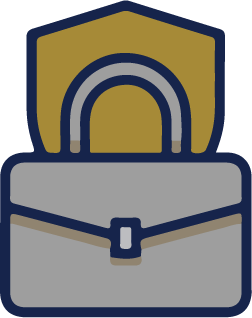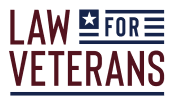Employment Issues Facing Returning Veterans
What are common challenges for veterans trying to find a job?

Unrealistic Expectations
Service members may become experts in several things during their time in service. While the military may train service members to a high standard, employers may require a certification or degree to apply for certain roles. Sometimes certification may be required by law.
Service members should also consider what job may be the best fit for them. Experiences such as supervising troops in the military might not be as identical of an experience as supervising an entire office team. Returning veterans need help understanding the scope of their military training and figuring out how that training translates to a civilian job.
Experience Interpretation
The training service members get and the skills they specialize in are not always what employers are looking for.
This is often true for service members who joined the service from high school or at a young age. These service members have spent little or no time at a job outside of the military. This puts them at a disadvantage since on a resume they lack experience. Also, these service members might have never looked, applied, or been interviewed for a job. Service members need to learn how to describe their skills to make them attractive for a job
Qualities like: problem solving, leadership, ethics, and time management may be part of the veteran’s skill set. Veterans need to learn how to show those qualities to employers in a meaningful way.
Employer Bias
Some employers might not consider military experience as work experience and would consider service as a gap in a resume. Employers may also worry that the veteran may struggle readjusting, impacting their job performance. They may also be hesitant to hire veterans because of ongoing health problems that would make them absent from work.
Returning to a Job
Service members who are returning to their job after serving need to quickly adjust to resuming their old job or a similar job with their employer. These returning service members may return to their job in from being in a combat zone.
Returning to work may mean quickly having to catch up to the team, learning new skills or processes, or adapting to a new position.
See more on the
Inability to Shed Military Identity
Some veterans report having a hard time getting along with coworkers. They view dealing with different attitudes and work ethics on the job may be challenging for a returning veteran. After years of discipline and precision, civilian attitudes may be hard to accept.
Unlike their time in the military, there is also the possibility of the veteran being placed in a job where competition is encouraged over teamwork. Veterans may also be overwhelmed by the amount of freedom they are given to make choices in the workplace.
What support is available for service members to get a civilian job?
A support program for service members who are ready to enter or return to a civilian workplace is the (TAP). This program provides training for service members and their loved ones to successfully prepare for their move from the military to civilian life.
TAP is a required program for service members exiting the military which is made up of a combination of in-person events and virtual modules. The program is divided into steps in a 12-month timeline which guides service members to veteran benefits, education options, federal assistance, and employment support.
How does TAP get me ready for a civilian job?
TAP begins with a 1-on-1 session with a TAP counselor. Service members complete a self-assessment and begin creating their Plan (ITP) that helps them understand what to expect from TAP.
Typically, members complete individualized initial counseling 1 year prior to exiting the military. Learn more about individualize initial counseling:
Individual service’s transition programs are found here:
How do I begin getting forms to create a resume?
When exiting the military, the service member’s branch will verify their military experience and training. To do so, a (VMET) form DD 2586 is generated that includes the service member’s knowledge, experience and skills gained in the military. The VMET includes:
- Military experience and training,
- Recommended college-credit information, and
- Civilian-equivalent job titles.
The VMET helps service members prepare resumes and job applications.
Are there military programs for service members with disabilities who want to get a job?
Veterans who have a service-related disability that limits their ability to perform a job, the (VR&E) program may help. This program helps those with disabilities find jobs or address education or training requirements.
Depending on the needs of the veteran, help may include:
- An evaluation to find out the abilities, skills, and interest of the service member,
- Job-related counseling and rehabilitation planning,
- Job training, resume development, and other work-readiness support,
- Help with locating and maintaining a job, including employer incentives and job accommodations,
- Independent living services to set the veteran up for success,
- On-the-job training (OJT), apprenticeships, and non-paid work experiences,
- Post-secondary education and training at a traditional, vocational, technical, or business, and
- Supportive rehabilitation services including case management, counseling, and medical referrals
In some cases, family members may be eligible for benefits too.
VR&E provides 5 support-and-services tracks veterans with disabilities may choose:

- and
To learn more about VR&E eligibility and how to apply,
What are educational programs that may help me get a job?
Where can I find programs that may be able to help me get a job?
:
- Search jobs by skills,
- Discover education and training options like certification, apprenticeships, and licensing, and
- Locate government benefits
:
- Connect with recruiters and attend job fairs,
- List of jobs by industry and locations, and
- Build and post resume for employers
:
- Locate jobs that accommodate for disabilities,
- Provide education and career counseling,
- Resources to start your own business, and
- Department of labor resources for veterans and their loved ones
:
- Employment opportunities by state,
- Help from the small business administration to start a business,
- One-on-one assistance in career exploration, training, resume builder and skills translator
:
- Job placement opportunities,
- Assistance with interview preparation, and
- Networking opportunities provided
(VEC):
- Public and private employer job openings,
- Career counseling support,
- Information on starting a small business.
Where can I be connected to federal jobs?
Feds Hire Vets explain the federal hiring process, how the veteran preference works for federal jobs, and describe special hiring authorities for veterans.
Federal Apprenticeships for Veterans:
Assists service members and veterans find high-skill, well-paying apprenticeships.
:
Virtual job boards for the department of Veterans affairs, federal, and civilian jobs.
:
Provides guidance on veterans’ preference in federal hiring.
:
Step by step walkthrough to apply for jobs on USAJOBS, the federal government’s jobs portal.
Are there career or industry specific job programs?
:
U.S. Department of Education and Department of Defense program to attract eligible service members to a new career as teachers.
:
Welding training program for veterans that includes transitional training to prepare for civilian life.
:
Mentoring program dedicated to assisting service members through career counseling, networking, and mentoring.
:
Connects service members to job opportunities in construction.
:
Program to prepare disabled veterans enter a career in the financial services industry.
:
Program created to empower women veterans and military spouses/partners to learn business skills and to turn an idea into a business.
Are there Arizona based organizations that may help me find a job?
:
The Arizona Department of Veteran’s Services has gathered an include list of resources including a job posting, information on economic programs, and training programs.
:
Be Connected is a program to increase access to support and resources for veterans and their loved ones. They may match service members to the appropriate resources available and provide necessary training for any gaps in knowledge or skills a service member may have.
:
The primary objective of the Veterans Program is to increase opportunities for veterans and eligible spouses to obtain employment and job training in Arizona.
:
Portal that provides access to veteran-specific programs, services and resources provided by Maricopa County and other public sector or community sites that support service members, veterans and their families.
